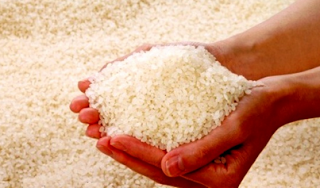
Every year your Zakat-ul-fitr helps needy with food for their living. Zakat ul Fitr (also known as fitrana) is a charitable donation of food that must be given before Eid prayer, before the end of the month of Ramadan, for the love of Allah. Zakat ul-Fitr is compulsory upon every self-supporting adult Muslim who has food in excess of their needs, on behalf of themselves and their dependants.
Ibn `Abbas (may Allah be pleased with him) reported: “The Messenger of Allah (peace be upon him) ordained Zakat ul Fitr [Fitrana] to purify the fasting person from indecent words or actions, and to provide food for the needy. It is accepted as Zakat for the person who gives it before the Eid prayer; but it is a mere Sadaqah for the one who gives it after the prayer.” [Abu Dawud and Ibn Majah] It is also called Sadaqat al-Fitr, “the Charity of Breaking the Fast” of Ramadan, and Zakat al-Fitrah, the Alms of Human Nature, or the Human Creation, because it is a mandatory charity due on every Muslim at the end of Ramadan, regardless of age or gender. Its obligatory payment is termed fitrah, derived from the Arabic term fitr, a word which signifies the “nature” upon which God created the human being, related also to the Arabic word for “fast-breaking” (iftar), eating after a period of abstention from this “natural” and defining human activity.
Zakat al-Fitr’s Background
Zakat al-Fitr comes into existence as an obligatory alms in Sha‘ban, the eighth month of the Islamic lunar calendar, in 2H, or the second year of the Hijrah. (The Arabic word hijrah (sometimes represented as Heigra or Hijra in English) means “migration,” or “emigration.” It denotes the migration of the Prophet, on him be peace, and his followers away from the persecution of the idolaters of Arabia’s central trade and holy city of Makkah. From there, they went north to the agrarian city of Yathrib, which then became known as Al-Madinah Al-Nabi, or the City of the Prophet, shortened to simply The City, or Al-Madinah. The Muslim hijri calendar, or Hjrah year, begins with that migration.) The obligation to pay the alms of Zakat al-Fitr at Ramadan’s end coincides with God’s revealed commandment in 2H for Muslims to memorialize the beginning of the Quran’s revelation to the Prophet Muhammad, on him be peace, 15 years before. It was revealed in the month of Ramadan, the ninth month in the Islamic lunar year, by reestablishing a primordial worship form, fasting (from dawn to sunset), for the entire month whenever its new crescent appears.
O you who believe! Fasting is prescribed for you as it has been prescribed for those who have believed before you, so you may be ever God-fearing. It is for a specified number of days. … It was the month of Ramadan in which the Quran was first sent down as guidance for all people, having in it clear proofs of divine guidance and the criterion for right and wrong. So whoever among you bears witness to the month shall then fast it. (Surat al-Baqarah, 2:183-85) Zakat al-Fitr differs from other kinds of alms or charity in that it is imposed on the individual Muslim and not on his or her measures of wealth or earnings.
Is Zakat al-Fitr Obligatory on All Muslims? Yes.
The Prophet, on him be peace, specifically called the Ramadan Fast-Breaking Alms “Zakat,” and the Quran says: And duly establish the Salah-Prayer and give the Zakat-Charity. (Surat al-Baqarah, 2:110 and Surat al-Nisa’, 4:77) The Companions of the Prophet, on him be peace, report: The Messenger of Allah, God bless him and grant him peace, “imposed” the Zakat of Fast-Breaking [at the close of Ramadan] at the measure of one sa‘ (4 double-handfuls) of dates or one sa‘ of barley, on every Muslim, free or bondsman, male or female.
